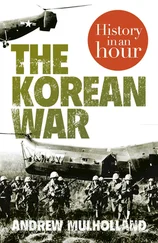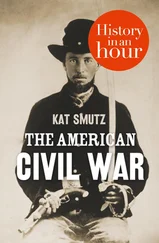Now, boldly, the Marquis Ito, the bandy-legged, taciturn Hasekawa at his side, trailing a long samurai sword, marched into the Hall of Bright Rule, the vast audience chamber. Here, the nervous cabinet awaited him, but the king was not in sight.
Ito demanded audience with the king. Messengers were sent, but the king refused to appear.
Smiling coldly, Ito brushed the retainers aside and went into the king's private apartments. He did not stop until he had burst in and was face to face with the paling monarch. Then he bowed. He begged audience. Matters, he said, were pressing.
The king had no stomach to face the smiling Japanese. "Please go away," he stammered. "My throat is very sore. Discuss your matter with my ministers."
Ito smiled, bowed, and withdrew. He marched back to the audience hall and told the cabinet ministers, "Your king has commanded you to settle this matter with me now."
Han Kyu Sul leaped angrily to his feet. "I will go myself to see the king!" he shouted.
Ito, without expression, watched the prime minister leave. He knew that Han Kyu Sul alone was holding the cabinet together and that Han was braver than his king. He had anticipated this, and imperturbably, he allowed Han to pass through the door.
Outside, the secretary of the Japanese Legation pressed a revolver barrel in Han Kyu Sul's side. "Be quiet, or I shall kill you!"
Han was forced into a small side chamber, and onto his knees.
Now the Marquis Ito appeared. He told Han Kyu Sul that the prime minister could be very useful to the Chrysanthemum and that it was time to recognize the march of history, time to bend and so profit by it rather than to fight it and die.
Han spat at him.
"Would you not yield, if your king commanded you?" Ito asked, at last.
"No. Not even then," Han said bitterly.
Ito met his stubborn black eyes, sighing almost regretfully. Han, of course, could be broken, but a broken tool is of no use. Leaving Han kneeling on the floor, he went again to the king's apartments.
"Han Kyu Sul is a traitor to you," he told the king abruptly. "He defies your order to treat with me; he will obey none of your commands."
Trembling, the king agreed that Han Kyu Sul should be removed. Ito's cold eye saw that the House of Lee was much decayed. He had also heard that the heir apparent was mentally retarded from birth. He made a mental note, that if all went well this night, the king would not live long.
Now the Marquis Ito went arrogantly from the king's presence, and spoke to the soldiers outside the Hall of Bright Rule. Then he went inside, seeing the worried faces of the Koreans turn toward him. Han Kyu Sul had been gone an hour, and courage was oozing minute by minute from these venerable, scholarly graybeards.
Ito squared his shoulders and threw back his head. He no longer smiled. He shook himself, and suddenly shrieked at them: "Han is dead! The Chinese are gone; the Russians are defeated. America is too far away to help you, in spite of your Treaty of 1882. You are all alone. Agree with us now and be rich—oppose us, and die!"
The cabinet grew frightened. They talked among themselves in low voices.
Now Hasekawa came in. Beating on the table with his sword, he raved that he would turn his soldiery loose upon the city, unless the cabinet signed a treaty of protection with Japan. Screaming and roaring at the shocked yangban , the Japanese threw off all restraint. Relentlessly, they hammered at the Koreans. None was allowed to leave; soldiers with bayoneted rifles guarded every exit.
Long past midnight, tears streaming down his face, the foreign minister used a newly installed device of the foreign devils, the telephone, to call for the Seal of State, so that a treaty might be signed.
The Keeper of the Seal, who knew what was afoot, refused to deliver it. Japanese soldiers found him and tore the Seal from him by force. The Seal was taken triumphantly to the Hall of Bright Rule by a grinning subaltern.
In this manner, the Marquis Ito negotiated a treaty of protection between Chosun and the Empire of the Rising Sun. He would become Governor-General of Chosun, because if he had not served his Tenno nobly, he had at least served him well.
Fourteen years after Chosun became a part of the Japanese Empire, the Reverend Edward W. Twing, of Boston, visited Korea as Oriental Secretary of the International Reform Bureau.
The Reverend Mr. Twing saw at once that a flush of enthusiasm for democracy and self-determination was sweeping Korea, just as in 1919 it was sweeping all the earth.
But in Chosun the movement was getting nowhere at all. The Japanese authorities, as a matter of policy, were extremely bitter about the whole thing, even about peaceful protests and demonstrations. The mere idea that the people of Chosun might desire separation from the Japanese East Asia Co-Prosperity Sphere was more loss of face than they could bear.
One day Mr. Twing saw a group of Korean girls of school age shout "Manzai!" —which means merely "Hoorah!"—at passing Japanese soldiers. The Japanese immediately opened fire on them. Another group of schoolgirls walking down the road, not even shouting, were set upon by the angry troops. The Japanese beat them with rifle butts, knocked them down, tore away their clothing. Then, as Mr. Twing related back in Boston, "the soldiers treated them in a most shameful fashion."
The Koreans had to be taught that they were inseparably citizens of the empire, whatever the class rating of their citizenship might be. They were taught so well that, during three months of 1919, more than fifty thousand of them were killed or at least hospitalized by the lesson.
Above all, Mr. Twing reported back, the Japanese were out to teach Korean Christian converts that contact with the philosophies of the West was dangerous. And it was. Christian men and women were dragged into Shinto temples, tied to crosses, and beaten savagely. Young girls of Christian families were stripped, fastened to telegraph poles by their hair, flogged, and left exposed to public view.
Mr. Twing let no one mistake that he found this highly distressing. Years later, survivors of Nanking, Malaya, and the Bataan Death March—not the travelers who stopped at the Imperial Hotel and were charmed by gentle smiles and ritual deference—would have understood what Mr. Twing was talking about. In 1919 nobody much cared. After all, the Koreans were Asiatics, and someone had to keep them in hand.
Mr. Twing told also about the great reforms the Japanese had instituted in Korea, and of which they eternally boasted. But Mr. Twing's version differed slightly from the official one.
The Japanese had reformed the ancient tongue of Chosun, Mr. Twing said, by abolishing it. Korean archives and treasures of literature were purified by burning, since there was no place in the bright new twentieth century for a separate Korean culture. Not only was Japanese the language of Korean courts; it was the only one allowed in the schools.
Beyond literacy, Koreans were to receive no education. No Koreans were allowed abroad to study, except a few trusted ones who were permitted to enter Japan. Even here they might not study religion, history, economics, politics, or law. Koreans were to be hewers of wood and haulers of water; Japan had already more scholars and subversives than the samurai could stomach.
Reform of the primitive economy was accomplished by placing almost all of it into the hands of pure-born Japanese, hundreds of thousands of whom were encouraged to emigrate.
Judicial reforms included mandatory flogging for minor offenses for which Japanese drew a monetary fine. Justice was also refined by the reintroduction of an ancient tool, the rack. Japanese police took over law enforcement, slowly training a corps of loyal Koreans to handle the minor details, such as traffic duty and beating of prisoners.
Читать дальше












